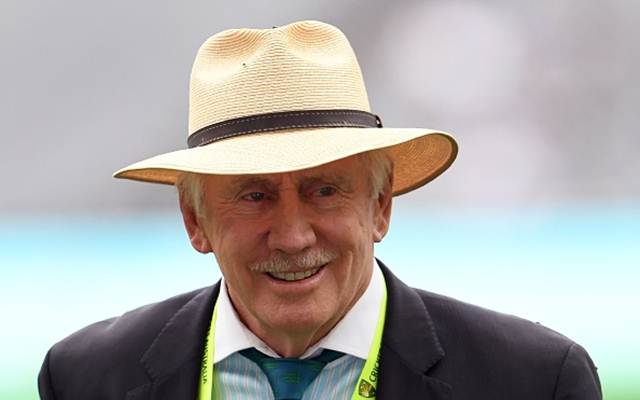'Don't necessarily need a crowd to be spurred on' - Ian Chappell on an empty SCG in Australia-New Zealand ODI
Australia and New Zealand ODI series got postponed to future.
2 Min Read


After Coronavirus came into the picture, the sports councils have taken a step to organize games in closed doors. Some players liked that approach and some find it a demotivating factor which can indirectly affect the performance of a player. Now, Ian Chappell, the former Aussie player has opened up over the same and has stated that a professional player doesn’t need a crowd to perform well.
Recently, the first game of three-match ODI series between Australia and New Zealand was played behind the closed doors. There was no single spectator present during the match sitting in the stands and there was no cheering for their favourite players.
It was an unusual sight to watch in an international game where players on their own have to go into the stands and bring back the ball. Moreover, a game like cricket can never be imagined without fans. However, there is no option available but to play in an empty stadium due to the recent outbreak of Coronavirus.
Ian Chappell feels that players don’t need a crowd
Ian Chappell, the former player feels that a player doesn’t need spectators as their motivating factor on the field during the games. It is just a thing that brings a flow in the match. He also added the fact that it was a different sight to watch in the match between Australia and New Zealand that there was silence after a player was scoring boundaries at SCG.
According to him, it is quite an uncommon sight to watch that international tours getting cancelled. Earlier, it happened during World War II when matches got cancelled in 1914 and resumed in 1920 during the first World War followed by the next World War between 1939 and 1946.
“I’m one who believes you don’t necessarily need a crowd to be spurred on as a sportsman; it’s the thrill of a close contest that gets the juices flowing. Nevertheless, it was a strange silence that accompanied scintillating boundaries and landmark scores at the SCG. The upside was the absence of mindless chatter over the PA system; it was good to enjoy a game of cricket where you could hear yourself think.
“The cancelling of major cricket matches is a rare occurrence and casts the sport back to the dark days of the two world wars test matches were suspended in early 1914 and didn’t resume until late 1920 because of the First World War. The gap in the competition was slightly longer during the Second World War, stretching from August 1939 until March 1946,” Ian Chappell wrote in his column for ESPNcricinfo.
Download Our App